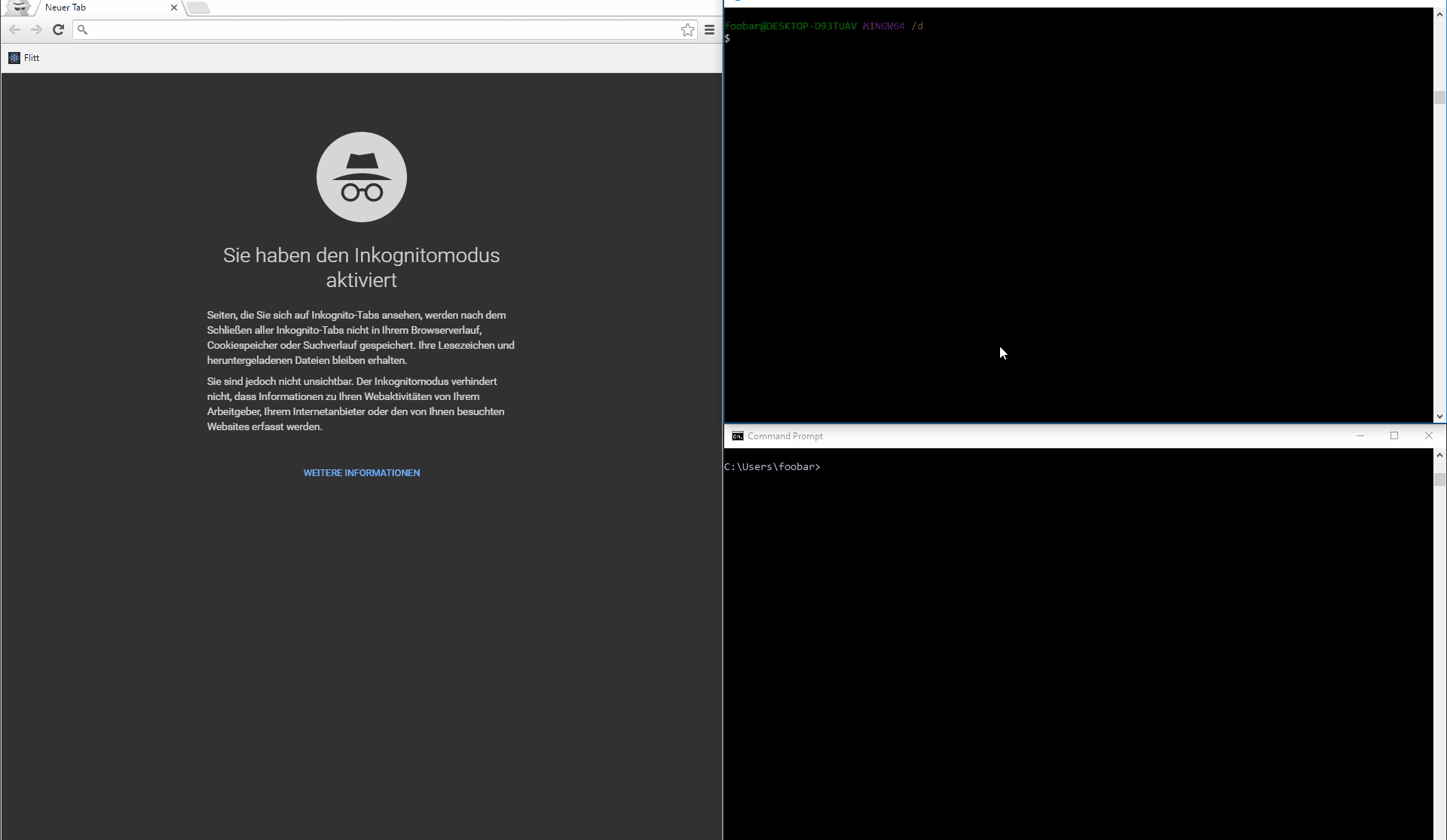ORY Hydra is a hardened OAuth2 and OpenID Connect server optimized for low-latency, high throughput, and low resource consumption. ORY Hydra is not an identity provider (user sign up, user log in, password reset flow), but connects to your existing identity provider through a consent app. Implementing the consent app in a different language is easy, and exemplary consent apps (Go, Node) and SDKs are provided.
Besides mitigating various attack vectors, such as database compromisation and OAuth 2.0 weaknesses, ORY Hydra is able to securely manage JSON Web Keys, and has a sophisticated policy-based access control you can use if you want to. Click here to read more about security.
Table of Contents
- What is ORY Hydra?
- ORY Gatekeeper
- Quickstart
- Security
- Telemetry
- Sponsors
- Documentation
- Reception
- Libraries and third-party projects
- Blog posts & articles
ORY Hydra is a server implementation of the OAuth 2.0 authorization framework and the OpenID Connect Core 1.0. Existing OAuth2 implementations usually ship as libraries or SDKs such as node-oauth2-server or fosite, or as fully featured identity solutions with user management and user interfaces, such as Dex.
Implementing and using OAuth2 without understanding the whole specification is challenging and prone to errors, even when SDKs are being used. The primary goal of ORY Hydra is to make OAuth 2.0 and OpenID Connect 1.0 better accessible.
ORY Hydra implements the flows described in OAuth2 and OpenID Connect 1.0 without forcing you to use a "Hydra User Management" or some template engine or a predefined front-end. Instead it relies on HTTP redirection and cryptographic methods to verify user consent allowing you to use ORY Hydra with any authentication endpoint, be it authboss, auth0.com or your proprietary PHP authentication.
ORY Hydra implements Open Standards set by the IETF:
- The OAuth 2.0 Authorization Framework
- OAuth 2.0 Threat Model and Security Considerations
- OAuth 2.0 Token Revocation
- OAuth 2.0 Token Introspection
- OAuth 2.0 Dynamic Client Registration Protocol
- OAuth 2.0 Dynamic Client Registration Management Protocol
- OAuth 2.0 for Native Apps
and the OpenID Foundation:
Gatekeeper is a firewall for APIs. It detects and prevents malicious requests and makes sure that no unauthorized requests reach your servers. Gatekeeper is set up in minutes, works with existing APIs, and makes use of ORY's popular open source ecosystem.
Learn more about Gatekeeper and try it for free!
This section is a quickstart guide to working with ORY Hydra. In-depth docs are available as well:
The tutorial teaches you to set up ORY Hydra, a Postgres instance and an exemplary identity provider written in React using docker compose. It will take you about 5 minutes to complete the tutorial.
There are various ways of installing ORY Hydra on your system.
The client and server binaries are downloadable at releases.
There is currently no installer available. You have to add the ORY Hydra binary to the PATH environment variable yourself or put
the binary in a location that is already in your path (/usr/bin, ...).
If you do not understand what that all of this means, ask in our chat channel. We are happy to help.
Starting the host is easiest with docker. The host process handles HTTP requests and is backed by a database. Read how to install docker on Linux, OSX or Windows. ORY Hydra is available on Docker Hub.
You can use ORY Hydra without a database, but be aware that restarting, scaling or stopping the container will lose all data:
$ docker run -e "DATABASE_URL=memory" -e "ISSUER=https://localhost:4444/" -d --name my-hydra -p 4444:4444 oryd/hydra
ec91228cb105db315553499c81918258f52cee9636ea2a4821bdb8226872f54b
Note: We had to create a new docker hub repository. Tags prior to 0.7.5 are available here.
Using the client command line interface: You can ssh into the ORY Hydra container and execute the ORY Hydra command from there:
$ docker exec -i -t <hydra-container-id> /bin/sh
# e.g. docker exec -i -t ec91228 /bin/sh
root@ec91228cb105:/go/src/github.com/ory/hydra# hydra
Hydra is a twelve factor OAuth2 and OpenID Connect provider
[...]
If you wish to compile ORY Hydra yourself, you need to install and set up Go 1.9+ and add $GOPATH/bin
to your $PATH as well as golang/dep. To do so, run the following commands in a shell (bash, sh, cmd.exe, ...):
go get -d -u github.com/ory/hydra
cd $GOPATH/src/github.com/ory/hydra
dep ensure
go install github.com/ory/hydra
hydra
Notes
- We changed organization name from
ory-amtoory. In order to keep backwards compatibility, we did not rename Go packages. - You can ignore warnings similar to
package github.com/ory/hydra/cmd/server: case-insensitive import collision: "github.com/Sirupsen/logrus" and "github.com/sirupsen/logrus".
Why should I use ORY Hydra? It's not that hard to implement two OAuth2 endpoints and there are numerous SDKs out there!
OAuth2 and OAuth2 related specifications are over 400 written pages. Implementing OAuth2 is easy, getting it right is hard. ORY Hydra is trusted by companies all around the world, has a vibrant community and faces millions of requests in production each day. Of course, we also compiled a security guide with more details on cryptography and security concepts. Read the security guide now.
If you think you found a security vulnerability, please refrain from posting it publicly on the forums, the chat, or GitHub and send us an email to [email protected] instead.
ORY Hydra collects summarized, anonymized telemetry which can optionally be turned off. Click here to learn more.
ORY Hydra is open source with a permissive license. We are a dedicated, young but also experienced team of developers in the area of cloud computing and internet security. Please support our mission for a safer web and become a sponsor, buy an engineer membership, or tell us why and how you are using ORY Hydra.
Become a ORY Hydra sponsor now and help keep the project open source, free, and maintained. Additionally, sponsors unlock
- Access to ORY's private slack community.
- Featured logo & link in the readme and on the website.
- placement in release announcements.
Sponsorship starts at 600$ per month. We accept smaller contributions as well, but without the benefits listed above.
We are proud to have Auth0 as a gold sponsor for ORY Hydra. Auth0 solves the most complex identity use cases with an extensible and easy to integrate platform that secures billions of logins every year. At ORY, we use Auth0 in conjunction with ORY Hydra for various internal projects.
The Guide is available on GitBook.
The HTTP API is documented at Apiary.
New releases might introduce breaking changes. To help you identify and incorporate those changes, we document these changes in UPGRADE.md and CHANGELOG.md.
Run hydra -h or hydra help.
Developing with ORY Hydra is as easy as:
go get -d -u github.com/ory/hydra
cd $GOPATH/src/github.com/ory/hydra
dep ensure
go test ./...
Then run it with in-memory database:
DATABASE_URL=memory go run main.go host
Notes
- We changed organization name from
ory-amtoory. In order to keep backwards compatibility, we did not rename Go packages. - You can ignore warnings similar to
package github.com/ory/hydra/cmd/server: case-insensitive import collision: "github.com/sirupsen/logrus" and "github.com/sirupsen/logrus".
Hydra has received a lot of positive feedback. Let's see what the community is saying:
Nice! Lowering barriers to the use of technologies like these is important.
OAuth is a framework not a protocol. The security it provides can vary greatly between implementations. Fosite (which is what this is based on) is a very good implementation from a security perspective: https://github.com/ory/fosite#a-word-on-security
[...] Thanks for releasing this by the way, looks really well engineered. [...]
Official:
Community:
- Creating an oauth2 custom lamda authorizer for use with Amazons (AWS) API Gateway using Hydra
- Warning, ORY Hydra has changed almost everything since writing this article: Hydra: Run your own Identity and Access Management service in <5 Minutes



